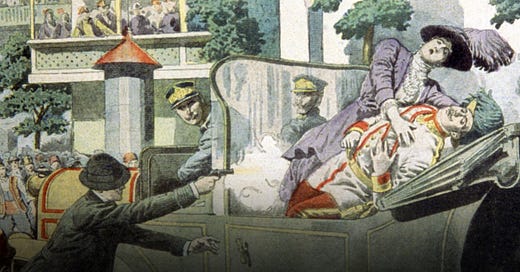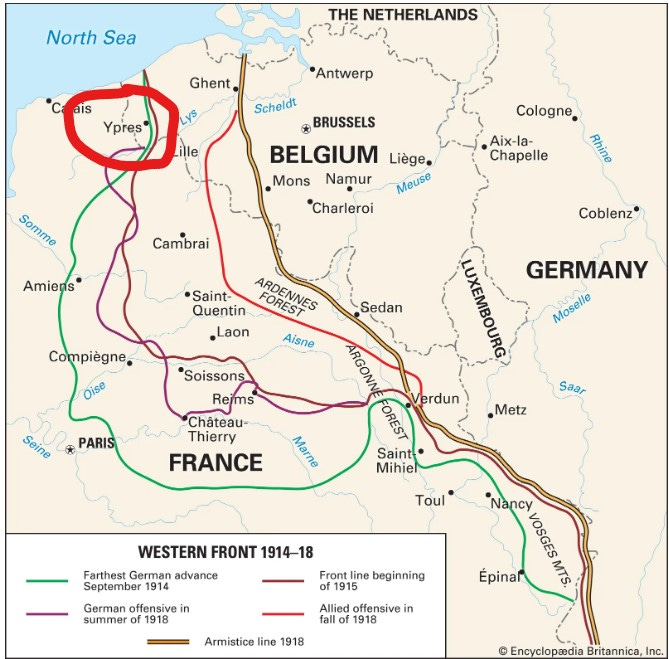September 13, 2023
You may have thought that blogging was a new phenomenon, and it is, as regards the use of the interweb.
But the need to say what one wishes to say in a manner that can be consumed by others and passed along is as old as, say, Moses and the Pentateuch.
Lots of people have used the Art of the Written Essay: Plato, Socrates, Thucydides, Kant, Sartre, John Locke, Thomas Paine, Art Buchwald, Dave Barry, Dave Chappelle, James Michener, Victor Davis Hanson. Maybe a billion others.
Solomons’ words were true even before he uttered them in about 900 BC: Of making many books there is no end. (Ecclesiastes 12:12).
The stresses of warfare bring a unique environment for written records. Some wartime writing is informational (We Were Soldiers Once and Young, Lt. Gen. Harold G. Moore), some emotionally evocative (My Very Dear Wife, Sullivan Ballou). Some is compressed into a brief timeframe (Lone Survivor, Marcus Luttrell), some over a period of years (With the Old Breed at Peleliu and Okinawa, Eugene V. Sledd).
And don’t forget the satire, particularly on the screens: Good Morning Vietnam! (Robin Williams 1987); No Time for Sergeants (Andy Griffith 1958); Teahouse of the August Moon (Marlon Brando, Glenn Ford 1956); and Hogan’s Heroes (Bob Crane 1965), McHale’s Navy (Ernest Borgnine, Tim Conway 1962).
Satire reached a new outlet in 1916 in the very dark days of World War I.
World War I
All of Europe was at war with one another. The conflict was sparked by the assassination of Archduke Ferdinand in Sarajevo, and amplified out of all reason by ties between traditional royal families throughout the continent.
The German army, led by Kaiser Wilhelm and augmented by Austria-Hungary and others, swept across the landscape.
The United Kingdom could not remain uninvolved, for it, too, was enveloped by interlocking treaties.
Ypres
[spelled Y-P-R-E-S]
The British 12th Battalion, Sherwood Foresters, was formed in August 1914 at the beginning of hostilities. It deployed to France a year later. In 1916 they were gassed at Wulverghem and then moved to participate in the first battle at The Somme, an incomprehensibly bloody affair. In 1917 they were at Vimy Ridge, Messines and Ypres. [EEp] or [EE pra]. In 1918 they found themselves back at The Somme.
The contest descended into trench warfare in 1916 – a situation where neither side could gain advantage – and progress ground to a virtual halt. What did not halt was the mounting casualties as both the Kaiser’s troops and the Allies attempted one suicidal frontal assault after another.
Captain Fred Roberts, and his subordinate Lt. Jack Pearson, managed a company of troops alternately bored by stalemate and terrified by artillery. The men found a printing press in a bombed-out building at Ypres. It was a welcome diversion.
A Sergeant in the detachment had civilian experience as a typesetter, and, incredibly, was able to put the machine into service. Paper and ink were found and creativity began.
Nobody could really pronounce the name of the Belgian village where the 12th Battalion sheltered. To the Brits, “Ypres” looked like “Wipers”. The name stuck, and The Wipers Times was created.

Originally intended only for comrades in nearby trenches, the circulation spread widely as the 12-page newsprint was handed from unit to unit.
From the beginning, it was wall-to-wall satire.
Excerpts from The Wipers Times:
Having managed to pick up a printing outfit (slightly soiled) at a reasonable price, we have decided to produce a paper. There is much that we would like to say in it, but the shadow of censorship enveloping us causes us to refer to the war, which we hear is taking place in Europe, in a cautious manner.
Great attraction this week: Messrs. INFANTRY, ARTILLERY & Co. present their screamingly funny farce, entitled BLUFF. This farce promises to be a great success and a long run is expected.
Quartermaster & Company, the world’s famous Back Chat Comedians: A great show, a stirring drama, entitled MINED. A most uplifting performance. Best ventilated hall in the town.
One particularly biting commentary was the spoof of Hilaire Belloc, editor of the British pro-war magazine Land and Water. Belloc was noted for inflated estimates of enemy casualties, published to promote optimism on the home front. The Wipers Times attributed this statement to the pseudonymously named Belary Helloc:
In this article I wish to show plainly that under existing conditions, everything points to a speedy disintegration of the enemy. We will take first of all the effect of war on the male population of Germany.
Firstly, let us take as our figures, 12,000,000 as the total fighting population of Germany. Of these 8,000,000 are killed or being killed, hence we have 4,000,000 remaining. Of these 1,000,000 are non-combatants, being in the navy.
Of the 3,000,000 remaining, we can write off 2,500,000 as temperamentally unsuitable for fighting, owing to obesity and other ailments engendered by a gross mode of living.
This leaves us 500,000 as the full strength. Of these 497,250 are known to be suffering from incurable diseases. This leaves 2,750. Of these 2,150 are on the eastern front, and of the remaining 600, 584 are generals and staff.
Thus we find that there are 16 men on the western front. This number, I maintain, is not enough to give them even a fair chance of resisting four more big pushes, and hence the collapse of the western campaign.
By the Numbers
The Great War accounted for some 40 million casualties. This was the first conflict in history where most deaths came from battle rather than from disease.
The first battle at The Somme was the stuff of nightmares. The first day of combat cost the British 60,000 casualties, one-third of them battlefield deaths.
The Spandau machine gun — the German version of the watercooled crew-served 60-lb Maxim gun that could spew 500 rounds a minute of .303 bullets — reigned supreme against unarmored troops charging with bayonets.
In a contest that ran 5 months, the Allies gained a mere 5 miles of territory at the cost of 1.25 million deaths from both sides of the conflict. Entire generations of young men were lost that Fall.
It is no wonder Black Jack Pershing refused to send his American forces into the trenches piecemeal. If U.S. troops were to fight, they would fight as a standalone army, on their own terms.
The Wipers Times was an outlet for normal men in abnormal circumstances to strive for sanity. World War I was so costly, and so unnecessary, that it became known as The War to End All Wars. And it was, for about 20 years.
The one that followed took twice as many lives.
For more information on World War I, particularly the first moves in August 1914, see Barbara W. Tuchman’s masterpiece The Guns of August. I had always avoided that book, because I found WWI to be depressing, until brother-in-law Bruce sent me a copy and I was afraid he may ask me how I liked it.
I loved it. Tuchman’s rendition is filled with dry humor, an unusual positioning for a work about this subject.
As an example, she relates an attempted conversation between two French Generals.
The General in the field used a telephone to call his superior officer, the senior General at Headquarters, to ask for clarification of his orders. The senior General would not take the call because he did not know how the telephone worked and was afraid of the technology. The field General, on the other hand, considered it an affront to his dignity to speak to anyone except the senior general. Thus, the conversation never took place.
It would be an entertaining story, except for the 40 million corpses at the end.
Theological Contemplations
The Great War came about because the leaders of various countries thought they were clever enough to guard their own national security by making iron-clad agreements with allies for mutual protection. Trouble was, each country had similar arrangements, once removed, and the web of inescapable, unbreakable commitments caused deadly entanglements.
What was required – before the shots were fired – was to consider the consequences and negotiate an exit from the commitments. This would have required some degree of humility, an attribute not normally associated with royalty.
I am reminded strongly of Jesus urging His disciples to count the cost. If you can’t win against his army, send a delegation to ask for terms of peace. (Luke 14:32)
Verse for the Week
Proverbs 16:18 Pride goes before destruction, a haughty spirit before a fall.
Have a good week! Try mightily to remain disentangled from those “Oh so reasonable” commitments that can easily land you where you do not wish to go!
Curt





















Share this post